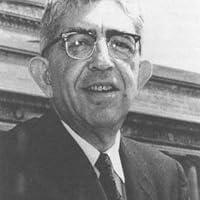
Ernest Nagel
O Autorze
Ernest Nagel was a prominent American philosopher of science and a leading figure in the development of logical positivism and scientific philosophy in the 20th century. He is best known for his works that explore the foundations and implications of logic and mathematics, particularly his influential book, "Gödel's Proof," which delves into Kurt Gödel's incompleteness theorems. Nagel's clear exposition of complex ideas has made significant contributions to both the philosophy of science and the philosophy of mathematics, bridging gaps between abstract theories and practical implications in these fields.
Throughout his career, Nagel emphasized the importance of logical reasoning in scientific inquiry and the limitations of scientific knowledge. He engaged with a variety of topics, including the nature of scientific explanation, the role of theory in science, and the relationship between science and philosophy. Nagel's work has influenced not only philosophers but also scientists and mathematicians, making him a key figure in the discourse on the nature and significance of scientific understanding.